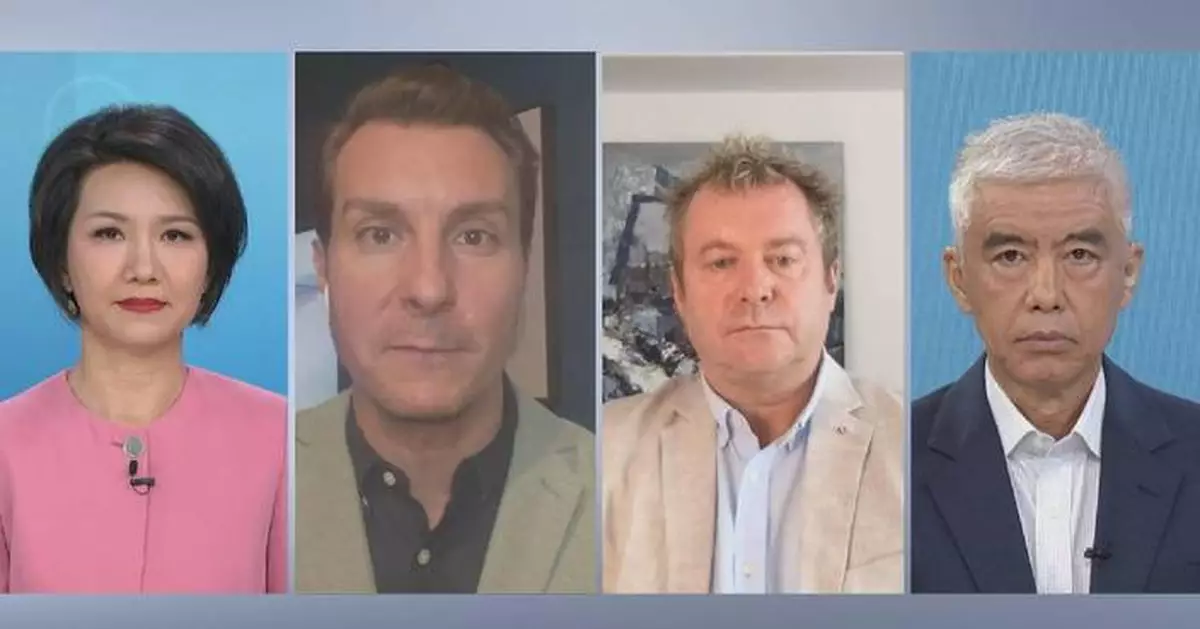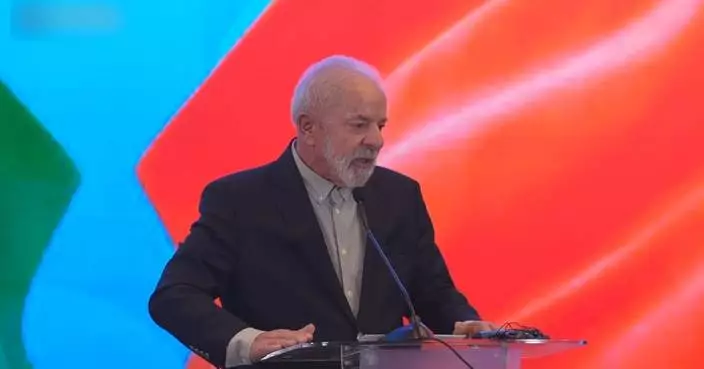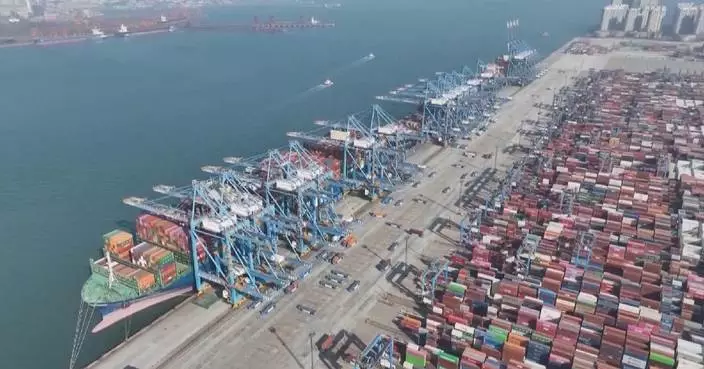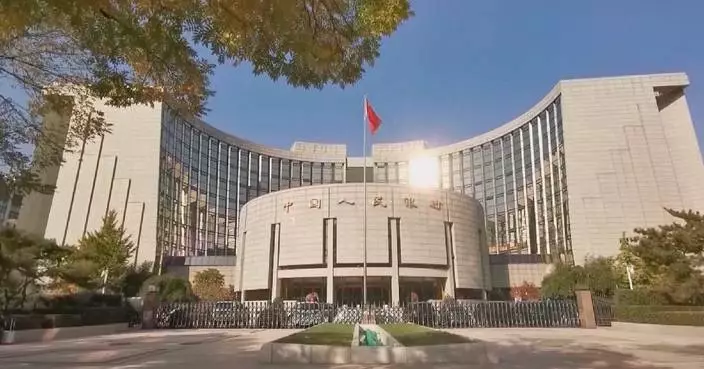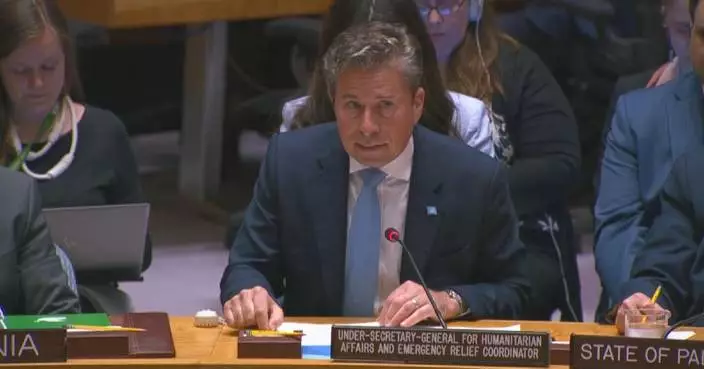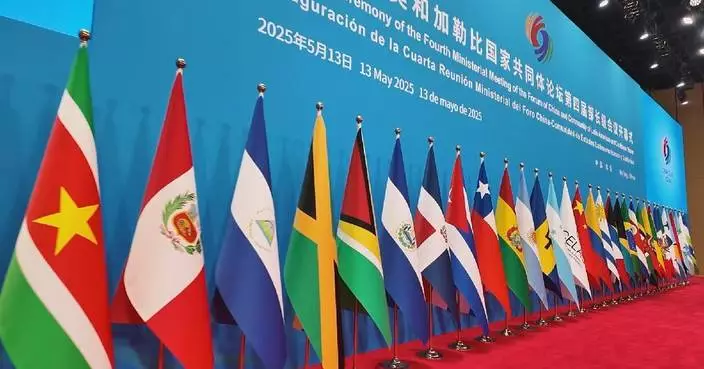Chinese swimmers have stood up to the scrutiny of repeated doping tests, winning gold medals in a "fair and square" manner during the Paris Olympics, two experts in sports said on Monday.
Speaking with China Global Television Network (CGTN), Daily National sports editor Mike Bako and president of Axis Leisure Management Justin Downes shared their views on the frequent doping tests the Chinese swimmers have been subjected to during the Games, and the team's gold-winning performance in the men's 100-meter freestyle and in the men's 4x100 meters swimming medley.
Chinese swimmer Pan Zhanle broke the world record to win an Olympic gold in men's 100-meter freestyle last Wednesday. And on Sunday, Pan led his three teammates to victory in the men's 4x100 meters swimming medley, ending the United States' 64-year unbeaten run in the event.
The victories came as doubts about doping have overshadowed the Chinese swimming team, despite the athletes' repeated clean test results.
According to World Aquatics, swimming's governing body, anti-doping organizations tested each Chinese swimmer an average of 21 times since Jan. 1. The number was significantly higher compared to the average of six times for American and four times for Australian swimmers.
The World Anti-Doping Agency (WADA) has also reviewed the Chinese athletes' case and found no evidence to dispute a previous contamination scenario related to the Chinese team.
Bako said the unfair accusations aim to stigmatize the Chinese swimming team, which is among the world's most dominant.
"There is this stigma that is there. Even though they are the most tested, even though there have been Olympic officials that have come out and said that, 'Yes, they are the most tested. Yes, there is no red flags. Yes, there are no positives yet.' But still, when it comes on this stage at the most prestigious of races, whether it be the 100 meters or certainly from a team perspective, the 4x100, when the race that has the most scrutiny is won by someone in such dominating fashion and such historic fashion, that's where all of the emphasis is going to be and that's where it is right now. Certainly, the spotlight shines the brightest, but if there are no positive tests to come of this, then of course they get the headlines and they get the glory," he said.
Downes expressed his confidence in WADA's credibility and impartiality, and believes the Chinese Olympic swimmers follow the rules in competition.
"I think WADA is a robust, long-serving association. I mean, this is their sole job is to protect athletes and protect the sport from any indiscretion. So, I think, no one wants to lose and I think everybody wants to find fault in the system, to prove that they're better. I hope that's not really the case. But I have to believe that WADA is at no fault. Maybe they need to upscale their testing mechanisms in the future. I don't believe that's the case because they've been doing this for so long. So, I think I truly believe that the Chinese team is clean. They won these events and are wining these events fair and square. I think they're competing on the same platform and playing field as every other athlete at these Games. China is becoming a powerhouse in the world of sport and obviously in the world of swimming. And this is new, and this is scary for the dominating nations," he said.
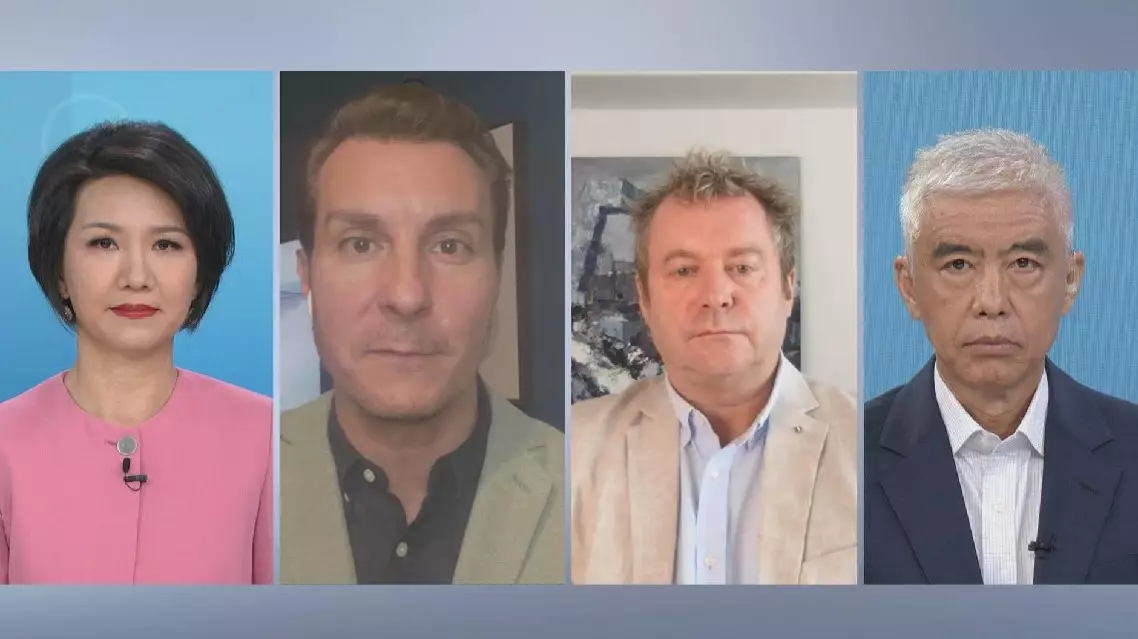
Chinese swimmers' Olympic win "fair and square": experts


